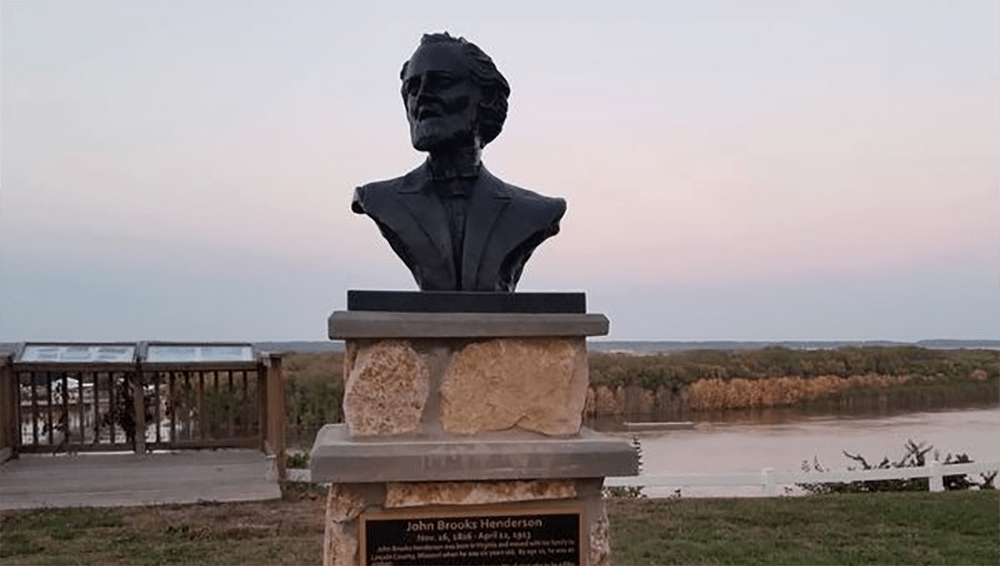
PIKE COUNTY, Mo. — Both sides of a divided America could argue that words voiced 160 years ago by John Brooks Henderson echo today.
The issue then was slavery, but the Pike County legislator touched upon other topics which still draw national discussion.
Henderson gave the speech at Hannibal on Aug. 20, 1862. He had just returned from a very dramatic first six months in the U.S. Senate, where he cultivated a friendship with President Abraham Lincoln that would have historic consequences.
A Democrat who became a Republican at the outset of the Civil War a year earlier, Henderson’s elegant phrasing also pointed the way toward reconciliation.
The senator’s view that the government in 1862 was “in imminent danger of destruction” would align with what many progressives now claim about the efforts of conservatives. Likewise, conservatives could argue that actions by progressives match with Henderson’s regret that “personal liberty can scarcely be guarded beneath the shield of the Constitution” anymore.
Though he certainly couldn’t have foreseen violence that erupted in American cities over the last several years, Henderson lamented that the “torch of rebellion is being touched to our dwellings, and wanton barbarity runs riot over the land.”
Henderson feared that “the gaunt forms of poverty and want stand near, threatening to advance amid the ruins of a once great and prosperous nation, touching with icy fingers the very victims of despair who, but yesterday, were the recipients of freedom’s richest bounties.”
The senator referred to the war as one of “partisan prejudice, of political ambition, aided by false theories of commercial policy and an inveterate hatred of democratic equality.”
The speech is sometimes contradictory, and Henderson comes nowhere close to anything resembling the 13th amendment, which he would draft and introduce in the Senate a little less than two years later.
His newly-formed relationship with Lincoln also is downplayed. At that point, he was more concerned about the financial cost of the war than freeing four million people held in bondage.
“Let the prejudices of the past be buried with the past,” Henderson said. “A terrible revolution is sweeping over the country, and a public debt is being rapidly contracted that threatens to make paupers of us all.”
At the time, Henderson and Lincoln were discussing gradual, compensated emancipation in which “owners” would receive money for freeing their slaves. There also were talks about colonization – carving out a place where freed slaves could govern themselves.
One thing Henderson was adamant about was that Missouri stay in the Union. While he wasn’t certain about a permanent solution, Henderson believed divisions would not end until slavery was eliminated.
“We, above all people, have suffered from this war,” he told the Hannibal crowd. “We are doomed to suffer yet more, unless we at once assume an attitude towards this rebellion that places us far beyond the hopes of treason.”
The North’s approach should be total war, Henderson argued, with none of the misguided “compromise and concession” that led to the first shots being fired.
“National existence is the synonym of national integrity,” he proclaimed.
Within a year, Lincoln would ask Northern states to sign up additional troops. Henderson supported the idea – and looked ahead to what he believed would be Missouri’s national leadership role.
“In this work of patriotism, Missouri should be no laggard,” he said. “Let her be the first to send her regiments to the field, as she is destined to be first among the States of the Union when peace returns.”